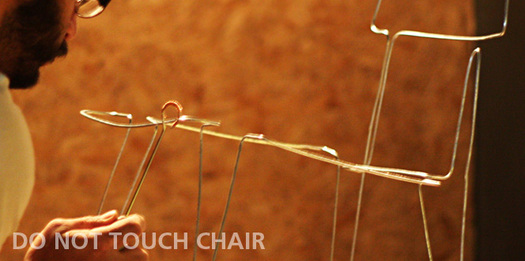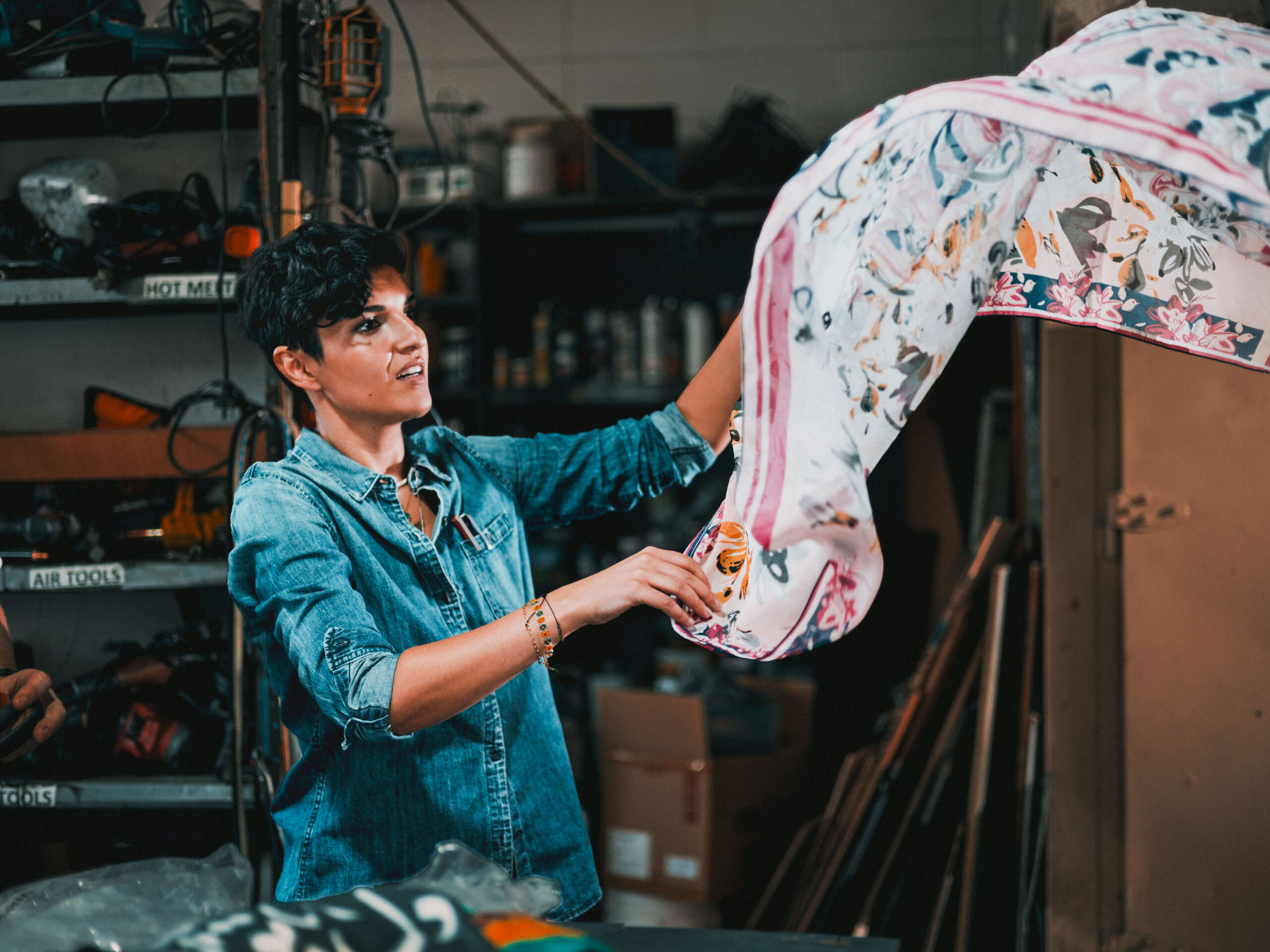
December 21, 2010
“Do Not Touch!”

A chair constructed from a single length of bent wire sits on an art gallery pedestal. Visitors are encouraged to trace its contours with an attached wire loop. But be careful. As with carnival games, if metal meets metal, the visitor is startled by a warning — an electronic voice barks out “Do not touch!” like an irascible museum guard.
The chair is British designer Dominic Wilcox’s contribution to “About a Minute,” the inaugural exhibition at The Gopher Hole, a London gallery devoted to edgy explorations in architecture, design and art. The show’s title refers to the conviction that in our distractable society, no single artwork will secure more than 59 seconds of a viewer’s attention. Wilcox set out to defeat this dour estimate with an interactive honeytrap.
A society that engages in “exponential hyperactive consumption,” in the words of the show’s organizers, is thus being asked to slow down. But will it? The “Do Not Touch Chair” is basically an exercise in hand-eye coordination. I’m guessing a generation of video gamers will make fast work of it.
“About a Minute” features more than a dozen contributors, from architectural visionary Rachel Armstrong to poet Luke Wright. It’s on view through February 14, 2011.
Observed
View all
Observed
By Julie Lasky
Related Posts

Business
Courtney L. McCluney, PhD|Essays
Rest as reparations: reimagining how we invest in Black women entrepreneurs

Design Impact
Seher Anand|Essays
Food branding without borders: chai, culture, and the politics of packaging

Graphic Design
Sarah Gephart|Essays
A new alphabet for a shared lived experience

Arts + Culture
Nila Rezaei|Essays
“Dear mother, I made us a seat”: a Mother’s Day tribute to the women of Iran
Recent Posts
Candace Parker & Michael C. Bush on Purpose, Leadership and Meeting the MomentCourtney L. McCluney, PhD|Essays
Rest as reparations: reimagining how we invest in Black women entrepreneurs Food branding without borders: chai, culture, and the politics of packaging Why scaling back on equity is more than risky — it’s economically irresponsibleRelated Posts

Business
Courtney L. McCluney, PhD|Essays
Rest as reparations: reimagining how we invest in Black women entrepreneurs

Design Impact
Seher Anand|Essays
Food branding without borders: chai, culture, and the politics of packaging

Graphic Design
Sarah Gephart|Essays
A new alphabet for a shared lived experience

Arts + Culture
Nila Rezaei|Essays

 Julie Lasky is editor of Change Observer. She was previously editor-in-chief of
Julie Lasky is editor of Change Observer. She was previously editor-in-chief of